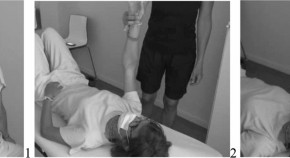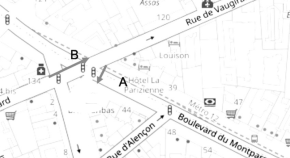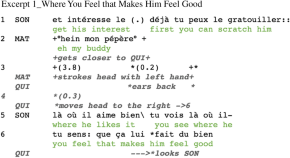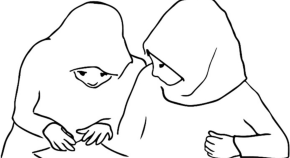Two Types of Demonstration Through Guided Touch with Cane: Instruction Sequences in Orientation and Mobility Training for a Person with Visual Impairments
Authors (first, second and last of 4)
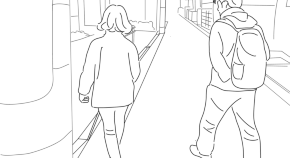
Collection
Countless aspects of touch and closeness have been questioned in an unprecedented way during the recent Covid epidemic. Social practices as banal as greetings were both reflexively and practically challenged, and sometimes deeply altered, resulting for many people in painful experiences of tactile deprivation and social isolation. This forced collective experiment produced an unusual awareness of the embodied nature of our relation to the social and material world. As Merleau-Ponty (1964 [1979]) insisted, the body should neither be conceived as being in the world nor as being the world itself; the body is of the world, both part of it and distinct from it. And much of this complex relation can be enlightened by a better understanding of touch and closeness. The purpose of this special issue is to bring forward empirical studies of a variety of naturally organized activities where touch and closeness play a crucial role, in order to explore their practical and experiential significance.
Touching has been often extended to a range of phenomena Merleau-Ponty (1964 [1979]) referred to as compresence and intercorporeality, the primordially embodied practices and experiences by which coordination and mutual adjustment to a shared world, including other human bodies, are achieved (Meyer et al., 2017). For instance, Cekaite (2018), studying hugs or soothing embraces between young children and their parents, examined how their entire bodies are progressively gathered at, building a hug together. Here again, such studies have moved the frontier of multimodal video analysis to empirical research which shed light on the way in which tactile contact makes possible and determines our relation to others and to the world we inhabit with them. The purpose of this special issue is to address such questions through detailed empirical studies of situated practices, in order to describe and understand how such classical post-phenomenological areas are brought into play and practically dealt with in various courses of action.
Recent studies of touch in interaction (Cekaite & Mondada, 2020), both in everyday family settings (Goodwin & Cekaite, 2018) and professional/institutional contexts (Burdelski et al., 2020; Nishizaka, 2007; Streeck, 2017) have convincingly and precisely investigated how touch, which had been explored in phenomenology from a philosophical perspective, features into the organization of social activities. The studies collected in this special issue address practices of touch and closeness in settings as diverse as physiotherapy (Keel), equine therapy (Mondémé), classrooms (Heinoenen and Tainio), orientation and mobility (O&M) training for persons with visual impairment (PVI) (Yasusuke et al.; Relieu), martial arts (Lefebvre) and improvised dance (Bovet). The interest of gathering these studies lies as much in the diversity of practices as in the thematic convergences that could be observed between them.
Alain Bovet (HE Arc - HES-SO, Switzerland) has worked and published on many aspects of embodied practices. From an initial interest in political communication, his recent video ethnographic work has addressed the embodied professional practices of caretakers in residential buildings, of technicians in district heating maintenance and of dancers and musicians in improvised contemporary performances. alain.bovet@he-arc.ch
Sara Keel works currently as a research project manager at the School of Health Sciences (HESAV), HES-SO University of Applied Sciences and Arts Western Switzerland. She has various publications related to her research activities. Adopting ethnomethodology and conversation analysis, she conducts research projects that investigate interactants' competent participation in the interactive, embodied and situated production and organization of socialization, family, migrants' press conferences, interprofessional meetings and the use of digital tools within ambulatory physiotherapy. sara.keel@hesav.ch
Marc Relieu (Telecom Paris, I3 UMR 9217 CNRS, France) has been interested in building an Ethno/CA embodied approach of speech, perception and sensoriality from his earlier works on street crossing and various organizational features of Orientation and Mobility courses to studies of various technologically-mediated interactions. He has co-edited several Ethno/Ca special issues of the French Journal Réseaux on Mobile phones (2002), videocommunication (2007) and more recently conversational agents (2020). marc.relieu@telecom-paris.fr


